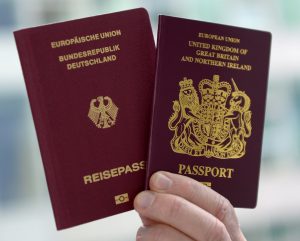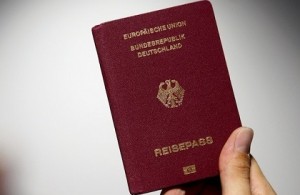Valentine's Day, known as "Valentinstag" in Germany, is a day marked by love, romance, and sweet gestures. While it may not be as extravagantly celebrated as in some countries, the day holds a special place in the hearts of many Germans. This article delves into the various ways Valentine's Day is celebrated in Germany, offering a blend of … [Read more...]
How Do You Flirt in Germany? Understanding the Subtleties of German Romance
Flirting in Germany can be a unique experience, especially for those coming from different cultural backgrounds. Understanding the nuances of German dating culture is crucial for anyone looking to make a romantic connection in this country. This guide explores the subtleties of flirting in Germany, offering tips and insights to help you navigate … [Read more...]
Dating Germans: Understanding German Dating Culture
Germany, known for its rich history, stunning landscapes, and robust economy, also boasts a unique dating culture that often piques the interest of those looking to find love in this European nation. Understanding the subtleties of German dating customs can be crucial for anyone looking to build a romantic relationship with a German partner. This … [Read more...]
How to Act Like a Real German
How do people greet one another in Germany? How do work colleagues interact? What really makes Germans "tick"? Anyone arriving in a foreign country for the first time is often unsure of how they should behave. So it makes great sense to find out about a country's idiosyncrasies before you arrive. You will find it far easier to integrate into both … [Read more...]
How to Make German Quark
Quark is a traditional, creamy, unripened cheese tracing its origin to German-speaking and eastern European countries. Quark is said to be a cross between yogurt and cottage cheese. This fresh, soft, white cheese is prepared from pasteurised cow's milk with a small amount of acid added to achieve a good, firm curd. However, traditional quark is … [Read more...]
How to Prepare for a Trip to Germany
If you are planning a trip to Germany but have no idea what to pack, here is everything you need to know about what to pack for your trip and the essential items you absolutely must take with you, plus a few packing tips and tricks, for good measure. Germany has so much to offer visitors. Whether it’s the World War II history throughout the … [Read more...]
How to Get a Work Permit for Germany
Obtaining a work permit for Germany is not always easy. Your success in the application process depends on various factors: your nationality, your occupation, even your annual salary. Here are the key aspects that you have to keep in mind. General Considerations Over the past few years, the German government has tried to encourage the migration … [Read more...]
How to Move to Germany
If you do not want to completely say goodbye to your own country in order to live in Germany, permanent residency to guarantee you can stay long-term might be a better bet. Taking up residency in Germany can be a tricky topic that involves a fair bit of paperwork. This article will list the most common types of German residence permits and explain … [Read more...]
German Dual Citizenship
While most nationalities must denounce their nationality in order to get German citizenship, German law permits certain people to hold two citizenships in certain circumstances. German dual citizenship can be granted in the following situations: Children with one German and one foreign parent, or a parent who has two citizenships, … [Read more...]
How to Get German Citizenship
Getting German Citizenship is one of the top questions we get so we have decided to summarize the information for those who are willing to get started. The German Foreign Office quite ominously warns on its website that “German citizenship law is relatively complicated” and that they can only answer “the issues which currently dominate the … [Read more...]









